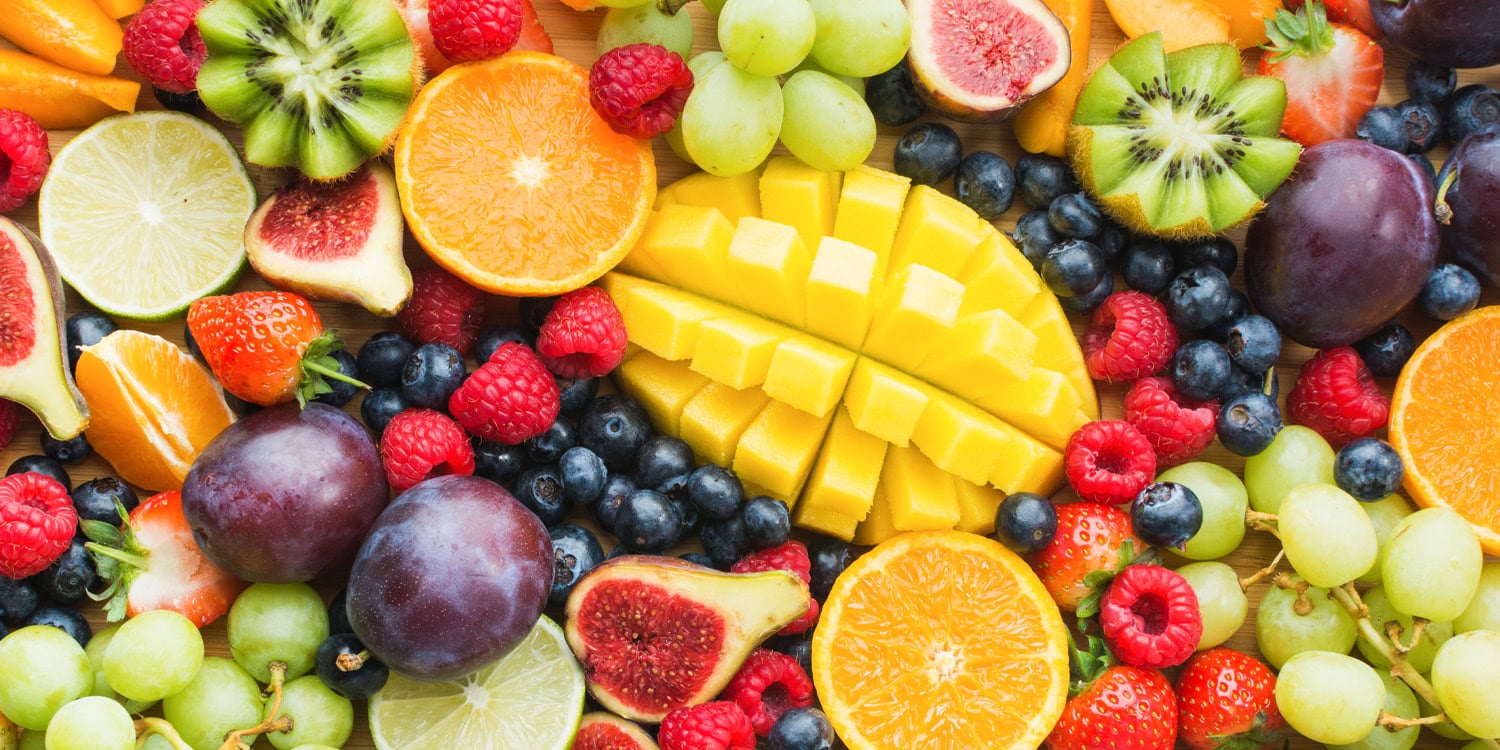Could a banana a day keep the blues away? A new study published in The Journal of Nutrition, Health and Aging suggests that regular consumption of fruits may help lower the risk of developing depression in older adults. The research, conducted as part of the Singapore Chinese Health Study, found that people who ate more fruits were less likely to experience depressive symptoms later in life.
Depression is a significant issue among older adults, often compounding other health problems and drastically reducing quality of life. With the number of older adults on the rise, the economic and social costs of depression are expected to increase as well. This study was part of a broader effort to explore how diet, a modifiable lifestyle factor, could contribute to healthier aging.
“We were interested in this topic because many countries, including Singapore, face the challenges of a rapidly ageing population. Yet, in addition to living longer, it is even more important to help older adults live in good health in order to maintain functional ability to enable well-being in old age,” said study author Woon-Puay Koh, a professor at the Yong Loo Lin School of Medicine in the National University of Singapore and the principal investigator of the Singapore Chinese Health Study.
“Healthy ageing is a multidimensional concept that includes mental health. Late-life depressive symptoms that occur in older adults are common mental problems characterized by depressed feelings, lack of pleasure, delayed thinking, and reduced volitional activity, and are often accompanied by loss of appetite, insomnia, poor concentration, and increased fatigue.
“Although such symptoms are often mild and only detected through careful screening, the prevalence ranges from 17.1% to 34.4% in older populations worldwide, and it has been estimated that 8%-10% of those with depressive symptoms transition into major depression every year. Late-life depression is also associated with increased risk of morbidity and mortality, and older adults with depressive symptoms often don’t respond well to medical treatment. Hence, it is important to identify modifiable factors associated with ageing-related depression so that we can implement risk-reduction strategies at early stage.”
“We were particularly interested in fruits because they abound with antioxidant vitamins and antioxidants, and could conceivably reduce oxidative stress and curb inflammatory processes that have been linked to possible neuroinflammation underlying the development of depression in ageing. Hence, we were keen to discover epidemiologic evidence, if present, of an association between fruit intake and the risk of ageing-related depression.”
The study involved more than 13,700 participants from the Singapore Chinese Health Study, which has been following Chinese adults living in Singapore for over two decades. The participants were between 45 and 74 years old at the start of the study, which began in the mid-1990s. They provided detailed information about their diet, including how often they ate various types of fruits and vegetables. This information was collected using a comprehensive food-frequency questionnaire designed to capture the typical dietary habits of the participants.
In addition to dietary information, the study also collected data on a wide range of other factors that could influence depression, such as physical activity, smoking, alcohol consumption, and pre-existing health conditions like diabetes and cardiovascular disease. These factors were carefully considered in the analysis to ensure that the relationship between fruit consumption and depression was not being influenced by other variables.
To assess depressive symptoms, the researchers used the Geriatric Depression Scale, a widely accepted screening tool designed for older adults. Participants were considered to have depressive symptoms if they scored five or higher on this scale. The study focused on depressive symptoms identified during the third follow-up period, which occurred between 2014 and 2016, nearly 20 years after the initial dietary data was collected.
The researchers found that those who consumed more fruits during midlife were less likely to experience depressive symptoms in their later years. Specifically, people in the highest quartile of fruit consumption had a 29% lower likelihood of depressive symptoms compared to those in the lowest quartile. This inverse relationship between fruit intake and depression risk was consistent across different types of fruits, including oranges, bananas, papayas, and watermelons.
Interestingly, the glycemic index of the fruits—an indicator of how quickly a food can raise blood sugar levels—did not seem to affect this association. Whether the fruits were low, moderate, or high on the glycemic index, higher consumption was linked to a lower risk of depression.
“The message is that eating two to three servings of fruits a day could reduce the risk of developing ageing-related depressive symptoms, and this can be achieved by eating fruits as snack between meals or as dessert after meals,” Koh told PsyPost. “Furthermore, since further studies are still needed to identify the micronutrients in fruits that may mediate the protective effects against development of depression, it is definitely better to eat the wholesome fruits rather than to consume supplements.”
In contrast, the study found no significant association between vegetable consumption and depression risk. Even after adjusting for fruit intake, the consumption of vegetables did not appear to have any protective effect against developing depressive symptoms. This finding was somewhat unexpected, as vegetables, like fruits, are rich in vitamins and other nutrients that have been thought to contribute to mental health.
There are several possible explanations for why fruits might be more protective against depression than vegetables. One theory is that fruits are often consumed raw, preserving their nutrient content, whereas vegetables are typically cooked, which can alter the availability and effectiveness of their nutrients.
“We were surprised that vegetables, also a rich source of antioxidants, did not have any effect on the risk of developing ageing-related depressive symptoms,” Koh said. “Fruits and vegetables are often prepared and consumed in different ways as fruits are typically eaten raw as snacks throughout the day, whereas vegetables are usually cooked for meals. Cooking is known to be a process which may change the bioavailability and activity of nutrients in vegetables, and this could perhaps limit the protective effects of these nutrients on depression. However, these are just our postulations, and further studies are needed to identify the specific micronutrients present abundantly in fruits that may mediate the protective effects of fruits on depression.”
While these findings are promising, there are some caveats to consider. For instance, while the study found a strong association between fruit consumption and reduced depression risk, it cannot definitively prove that eating more fruits directly causes this reduction. There could be other factors at play that were not fully accounted for in the analysis.
Future research could help to clarify these findings by exploring the specific nutrients in fruits that might protect against depression and by examining whether similar associations are found in other populations. The researchers suggest that further studies could also investigate the potential effects of different ways of preparing and consuming vegetables, to see if certain methods might enhance their protective effects.
“The long-term goal is to use an integrated and holistic approach to examine the effects of biological, lifestyle and socioeconomic factors that affect multi-dimensional outcomes as Singaporeans transit from health to morbidity in ageing,” Koh explained. “Thus far, we have also investigated and published how lifestyle and diet affect the risk of other adverse ageing outcomes such as physical frailty and cognitive impairment.”
“While ageing is a global challenge, Asia sees one of the fastest increase in the percentage of older adults aged 65 years and above. Yet, most of the studies on ageing outcomes have been done in Western populations, and evidence from Asian populations is limited. Since there are marked differences in food habits and lifestyle preferences between Western and Asian populations due to social-economic and regional factors, studies among Asian populations with long-term follow-up periods are necessary to fill the research gaps. We hope that our data from the Singapore Chinese Health Study, such as this one on fruits and depression, can contribute to evidence for interventions that may prove to be feasible and effective in promoting healthy ageing in older adults, especially in Asian populations.”
The study, “Association between consumption of fruits and vegetables in midlife and depressive symptoms in late life: the Singapore Chinese Health Study,” was authored by Huiqi Li, Li-Ting Sheng, Aizhen Jin, An Pan, and Woon-Puay Koh.




